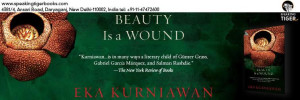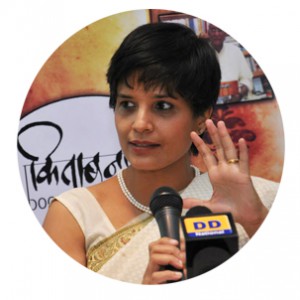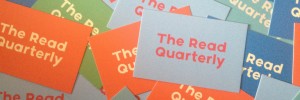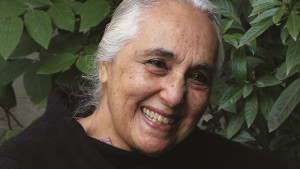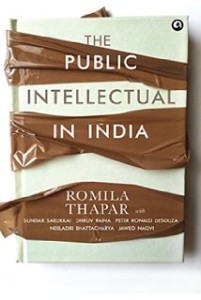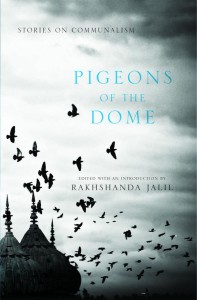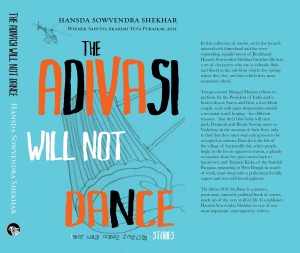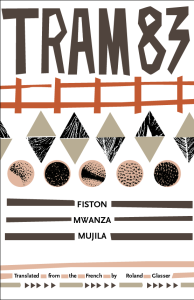Review of Fiston Mwanza Majila, “Tram 83” : Waiting for Godot in the Congo
I reviewed for The Wire, Fiston Mwanza Majila’s wonderful debut Tram 83, translated by Roland Glasser from French into English and originally published by Deep Vellum ( USA). It has been published in the Indian subcontinent by Speaking Tiger Books on their exciting new list for International Literature. Here is the original url: http://thewire.in/2016/06/02/review-waiting-for-godot-in-the-congo-39893/ . This was published online on 2 June 2016. I am c&p the text below.
Fiston Mwanza Mujila’s Tram 83 is a bold experiment in form, set in an anonymous ‘City-State,’ which unnervingly parallels the Democratic Republic of Congo.
These recorded sounds are historical monuments, works of literature, poems, tragedies. Through the rust and other elements, you can feel history, the history of peoples, the memory of migration.
Fiston Mwanza Mujila burst upon the international literary landscape with his debut novel Tram 83. It was originally published in French in 2014 by Éditions Métailié and translated into English by Roland Glasser in 2015. Tram 83 is inspired by the city of Lubumbashi in the Democratic Republic of Congo (DRC), where the local economy is driven by diamond mining. The story is about ‘City-State,’ which could be anywhere, yet is distinctly a mining town. In City-State, one of the most popular restaurants and hooker bars is ‘Tram 83,’ and it is frequented by:
Inadvertent musicians and elderly prostitutes and prestidigitators and Pentecostal preachers and students resembling mechanics and doctors conducting diagnoses in nightclubs and young journalists already retired and transvestites and second-foot shoe peddlers and porn film fans and highwaymen and pimps and disbarred lawyers and casual labourers and former transsexuals and polka dancers and pirates of the high seas and seekers of political asylum and organised fraudsters and archeologists and would-be bounty hunters and modern day adventurers and explorers searching for a lost civilisation and human organ dealers and farmyard philosophers and hawkers of fresh water and hairdressers and shoeshine boys and repairers of spare parts and soldiers’ widows and sex maniacs and lovers of romance novels and dissident rebels and brothers in Christ and druids and shamans and aphrodisiac vendors and scriveners and purveyors of real fake passports and gun-runners and porters and bric-a-brac traders and mining prospectors short on liquid assets and Siamese twins and Mamelukes and carjackers and colonial infantrymen and haruspices and counterfeiters and rape-starved soldiers and drinkers of adulterated milk and self-taught bakers and marabouts and mercenaries claiming to be one of Bob Denard’s crew and inveterate alcoholics and diggers and militiamen proclaiming themselves “masters of the world” and poseur politicians and child soldiers and Peace Corps activists gamely tackling a thousand nightmarish railroad construction projects or small-scale copper or manganese mining operations and baby-chicks and drug dealers and busgirls and pizza delivery guys and growth hormone merchants, all sorts of tribes overran Tram 83, in search of good times on the cheap.
This long passage is best read aloud and that is the distinctive breakthrough in the novel. It is less a novel than an oral performance. There is absolutely no point in trying to read it as a classically structured novel. The writing has a structural rhythm defined by the punctuation. In an interview, Glasser said that while working on the translation he would spend some time walking around in the garden reading the text out aloud to himself.
Mwanza Mujila is a performance poet, something that gives him a natural feeling for the song in the words. The fabulous performance that he and Glasser gave at Malvern Books, accompanied on the saxophone by Chris Hall, shows how in tune he and his translator are. Ever since he was a child, Mwanza Mujila wanted to learn how to play the saxophone, but was unable to get one so instead he taught himself to use his voice as the instrument. He demonstrated it at the Brooklyn Book Festival. Woven along with these musical influences is the very strong impact of evangelical Christianity. The way that the words and lists build up to crescendos in the book are very similar to a tub-thumping pastor’s sermons.
It is fascinating to discover that Mwanza Mujila is pursuing a PhD in Romance languages & literatures. Romance literature emerged out of the textual recording of oral forms of storytelling like the Arthurian cycle. It is also phonetically written, lending itself to varying rhythms when read aloud. These stories also served a definite purpose of recording contemporary socio-political-economic events like the tin trade between France and Glastonbury but were also thoroughly entertaining. Obviously a form of storytelling that many centuries later continues to be popular.
A Beckettian relationship
This is not to say that the plot is unimportant. Tram 83 is primarily about two characters – Lucien, a writer, and Requiem, a hustler, who were close friends but drifted apart. Lucien is upright and ethical, while Requiem is wonderfully amoral, minting money however he can, from illegal sales to blackmail. Lucien returns from the “Back-Country,” having completed half of a “stage-tale” entitled “The Africa of Possibility: Lumumba, the Fall of an Angel, or the Pestle-Mortar Years…Characters include Che Guevara, Sékou Touré, Gandhi, Abraham Lincoln, Lumumba, Martin Luther King, Ceauşescu, not forgetting the dissident General”. He moves in with Requiem, who continues to flourish with his disreputable activities, but their relationship is now imbued with a deep-seated love/hate resentment towards each other. It is a particularly Beckettian relationship reminiscent of Vladimir and Estragon in Waiting for Godot especially with the refrain peppered throughout the text – “Do you have the time”. Many times the conversations do not make any sense unless read aloud. Out of nonsense emerges a narrative.
Around Lucien and Requiem swirl people and conversations, with a plethora of walk on parts. A few characters remain throughout the story, such as the publisher Ferdinand Malingeau. It is like a well-constructed theatrical performance, an opera, but it is surreal given the unnerving parallels with the DRC. In an interview with Asymptote the author said, “…the “City-State” could be anywhere; a non-place, in the same way that, in his view, DRC is a non-country — no stable government, borders constantly breached by armies from neighbouring states”.
Women are marginal to the story. Mwanza Mujila defended this decision in an online interview, saying, “Anyone who has spent at least one day in a quarry or mine knows that masculinity is a necessity (for the diggers) in this environment, and that this particular masculinity is constructed differently to that found in cities or out in the countryside, often to the detriment of women”.
Tram 83 has already garnered significant literary prizes, such as Grand Prix SGDL, the Literary Prize of Graz, Austria, 2015 Etisalat Prize for Literature and had been longlisted for the Man Booker International Prize 2015. It is a bold experiment in form and an absolutely marvellous debut – tough to read but intelligently crafted.
Buy it. Read it. Become a fan.
Fiston Mwanza Mujila Tram 83 Translated by Roland Glasser, Speaking Tiger Publishing, Delhi, 2016, 210 pages, Rs. 350.
2 June 2016


